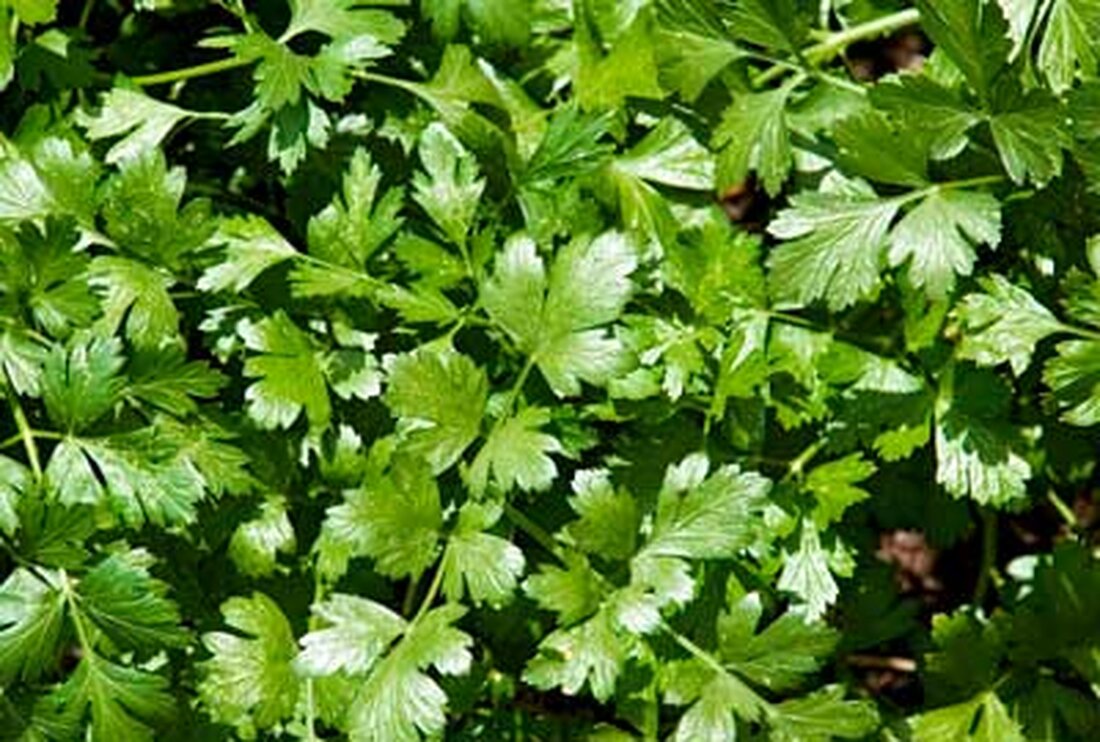Coriander - Health Benefits and Effects
Cilantro is an annual herb, meaning it flowers and needs to be replanted annually. Coriander is used to describe the citrus-flavored green leaves. Coriander is the common name for the plant's light brown seeds, which are dried and used as a cooking spice. No matter what you call it or how you use it, this amazing plant varies depending on where you live in the world, but its health benefits remain the same. Cilantro can help cleanse the body of toxic metals, it is an incredible source of antioxidants, it is full of vitamins and minerals, and it has a long history of culinary and therapeutic...

Coriander - Health Benefits and Effects
Cilantro is an annual herb, meaning it flowers and needs to be replanted annually. Coriander is used to describe the citrus-flavored green leaves. Coriander is the common name for the plant's light brown seeds, which are dried and used as a cooking spice. No matter what you call it or how you use it, this amazing plant varies depending on where you live in the world, but its health benefits remain the same. Coriander can help cleanse the body of toxic metals, it is an incredible source of antioxidants, it is full of vitamins and minerals, and it has a long history of culinary and therapeutic use.
Coriander Nutrition Facts
Cilantro is a great source of vitamins and minerals and should be considered a superfood. A small amount provides the full daily value of vitamins A and K and is rich in vitamin C, potassium and manganese. Cilantro is a great, low-calorie option for those looking to add more nutrients and flavor to their diet. Below is the full nutritional breakdown for 100g. of raw coriander leaves. (Source)
| Vitamins and minerals | Crowd | Daily value |
|---|---|---|
| Vitamin A Equiv. | 6748 IU | 135% |
| Thiamines (B1) | 0.067 mg | 4.5% |
| Riboflavin (B2) | 0.162 mg | 9.5% |
| Niacin (B3) | 1,114 mg | 5.5% |
| Vitamin B6 | 0.149 mg | 7.4% |
| Vitamin C | 27 mg | 45% |
| Vitamin E | 2.5 mg | 8% |
| Vitamin K | 310g | 387% |
| calcium | 67 mg | 7% |
| iron | 1.77 mg | 10% |
| magnesium | 26 mg | 7% |
| manganese | 0.426 mg | 21% |
| phosphorus | 48 mg | 5% |
| potassium | 521 mg | fifteen% |
| sodium | 46 mg | 2% |
| zinc | 0.5 mg | 1.6% |
Coriander and toxic metal cleansing
In addition to being a nutritional benefit, coriander is also a powerful cleanser that specifically targets toxic metals. We are constantly exposed to toxic metals such as aluminum, arsenic, and cadmium. Toxic metals tend to accumulate in the endocrine system, muscle tissue, and even deep in the bones. Once these metals reach dangerous levels, many serious health concerns arise. Common side effects of exposure to toxic metals include hormone disruption, oxidative stress from free radicals, and in extreme cases, impaired organ function. Do not wait until severe side effects occur before cleansing your body.
Mercury, for example, can have devastating effects on your health. Many people suffering from mercury feel clearer after consuming large amounts of coriander over a long period of time. ((link removed))
Lead exposure is also far more common than many people realize and has many adverse effects on the body. In animal studies, coriander has been observed to protect against lead-induced oxidative stress. ((link removed))
Coriander helps cleanse the body of toxic metals by supporting the body's natural detoxification processes. Compounds in coriander leaves bind to toxic metals and leach them from affected tissue. This process allows metals to be naturally released from the body. You can access these benefits by consuming the raw leaves or taking concentrated extracts.
Additional Benefits of Coriander
Antioxidant support
Coriander has strong antioxidant activity. ((link removed))
Promotes heart health
Cilantro may help prevent cardiovascular damage. ((link removed))
Provides a mood boost
Coriander has been shown to promote calm feelings. ((link removed))
Promotes normal blood sugar levels
Some studies report that cilantro promotes normal blood sugar levels. ((link removed))
Supports restful sleep
Coriander can help improve sleep quality. ((link removed))
Supports healthy cells
Coriander seed oil has antioxidant properties that can reduce oxidative stress. ((link removed))
Promotes mushroom balance
Research from the Dental School of Piracicaba in Brazil has found that coriander oil may be effective against an oral form of the Candida fungus. ((link removed))
Fights harmful organisms
Coriander has shown neutralizing effects against various types of harmful organisms. ((Link removed), (Link removed))
Promotes brain health
Cilantro may support neurological health by deterring oxidative stress. ((link removed))
Promotes normal fluid balance
Coriander seeds promote normal fluid balance and urine flow. ((link removed))
Supports bone health
Vitamin K supports healthy bones, and even a small amount of cilantro provides the recommended daily serving of vitamin K.
Nutritional support for eye health
Cilantro contains nutrients, including vitamin A, that support eye health.
Natural food preservative
Coriander leaves and coriander seeds are used to produce essential oils that act as natural food preservatives. ((link removed))
Digestive support
James A. Duke, Ph.D., former U.S. Department of Agriculture botanist and author of the "CRC Handbook of Medicinal Herbs," has praised cilantro for its digestive system support. He recommends drinking tea made from the leaves for any form of stomach discomfort. Additionally, coriander can promote normal bowel movements. ((link removed))
Tips for Growing Coriander
Cilantro is easy to grow and it's convenient to have fresh cilantro ready to use. Cilantro grows quickly and doesn't always transfer well. Therefore, plan to grow your cilantro from seeds. Coriander leaves stop growing and become bitter after the plant flowers. That's why it's best to plant your cilantro in spring and fall to avoid the longer, hotter summer days in between.
Plant coriander seeds in well-drained, well-fertilized soil. Choose a place where the sun shines. Sow several seeds 1/4 inch deep into the soil and 6 to 8 inches apart. If the soil feels dry, water again.
Wait three to four weeks before harvesting the coriander leaves. Leaves can be harvested at any time during the growing process, but you should wait until the plant is at least 6 inches tall. If you want to harvest the leaves continuously, sow new seeds every two to three weeks. Unlike other herbs, coriander leaves lose most of their flavor when dried. Therefore, it is better to use them fresh. If you need to store them, freezing is the best option. The seeds of the coriander plant – coriander – require a different approach. The seeds can be used for planting or dried and used culinary. Wait until the seeds are harvested until most of the plants have turned brown. Cut the stem a few inches below the seed. Tie the stems in bundles and hang them upside down in a brown paper bag. After about five days, the dried seeds should fall from the stems into the bottom of the bag. You can store the seeds in an airtight glass container for up to a year. To release the flavors, dry roast or grind before use.
How to use your cilantro
Coriander has been used in a variety of ways throughout recorded history. The ancient Greeks used coriander essential oil as an ingredient in perfume. In the Middle Ages, Romans used coriander to mask the smell of rotten meat. Coriander was also one of the first herbs to arrive in North America from the British colonies in 1670. Today, coriander leaves and coriander seeds are used in many types of cuisine.
Cilantro's popularity is due to its fantastic taste and versatility. For those who love cilantro, the possibilities are endless. From salsa and soup to meat or vegan curry, cilantro is a delicious ingredient, side dish and flavor enhancer.

 Suche
Suche
 Mein Konto
Mein Konto
